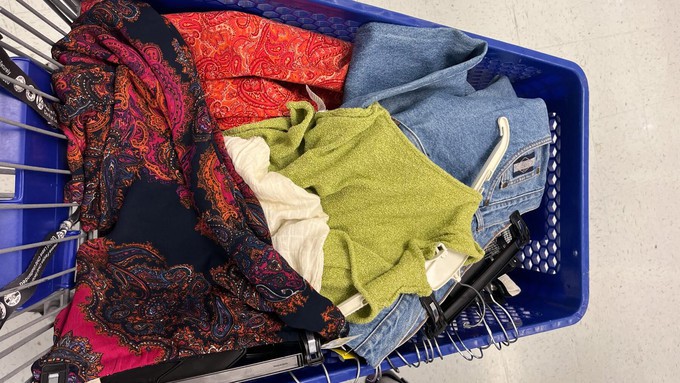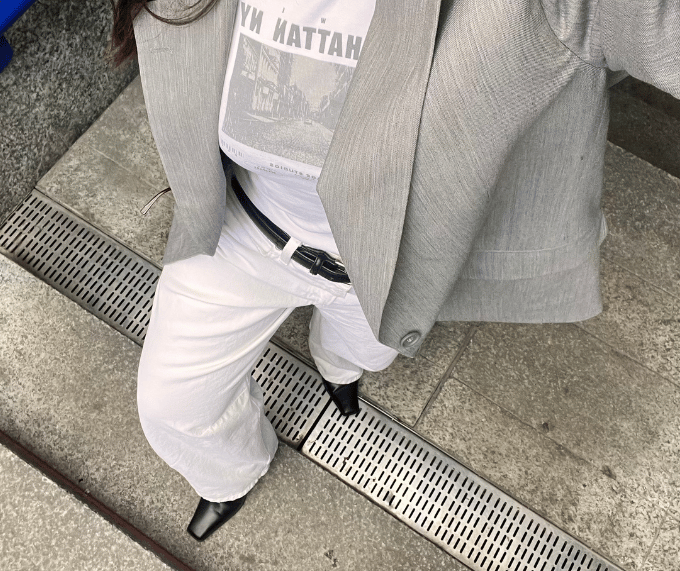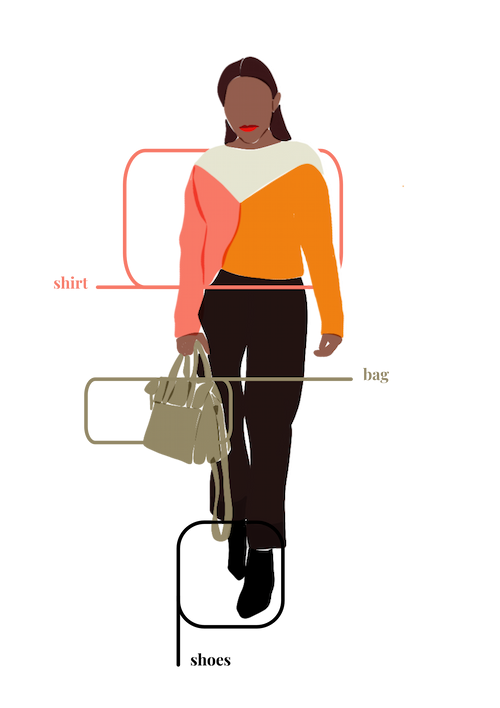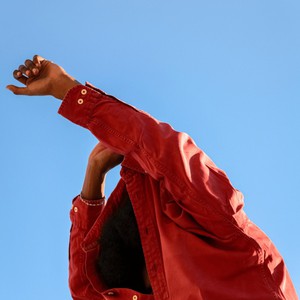- Clothes
- Bags
- Accessories
-
Inspiration
- Shoes
Watch Out! 17 Psychological Tricks Making You Buy More Clothes

You head to the website of your usual online clothing store or walk into a physical branch. You tell yourself “I’m only going to buy this one dress”. And next thing you know? You’ve purchased a bunch of random clothes. Again.
You might be tempted to blame yourself or a lack of self-control, but the chances are… that brand was using some powerful psychological tricks to make you buy more!
In the past, we fell for them, too (so many times). Now that we're aware of them, though, it’s much easier to resist.
So, if you’re a fellow eco-conscious consumer trying to reduce how many clothes you buy, here’s what to watch out for.
The problem with fast fashion overconsumption

In a nutshell:
- Fast fashion overconsumption is terrible for the planet – The average consumer bins 37kg worth of clothes every year, and we create 92 million tonnes of textile waste overall (the equivalent of a track full of clothes being dumped into landfills or incinerated every second!). Because they’re discarded after being worn less than 7 times, this doesn’t even justify each item’s environmental footprint, from the energy used to produce it to the CO2 emissions of its transportation and what happens after its end of life. Plus, those clothes will keep polluting the soil, air, and water, especially if they’re synthetic
- It’s usually promoted by brands using sweatshops where garment workers are trapped in modern slavery conditions – After all, churning out so many cheap items is only possible when there’s an expensive hidden cost
- It’s also bad for you – Despite the initial dopamine hit of a new purchase, overconsumption keeps you unhappy in the long run. No wonder you never feel complete or satisfied even after buying yet another new garment
That’s why it’s important to move away from overconsumption.
It’s hard, though, when brands use psychological tricks to make you buy more clothes. So, let’s start shining a light on them.
19 psychological tricks used by fast fashion brands to make you buy clothes you don’t want or need
We need to clarify that it’s not just fast fashion brands. Some of these psychological tricks are used by all kinds of stores, and they aren’t always unethical per se.
The problem is when brands take it too far, using several of these tactics to make you bypass logic and act on an impulse.
Psychological tricks used by online stores

1. Creating urgency through countdown timers (which are often fake! I once bought something because it was “on sale for 24h”... and then the countdown just started again)
2. Triggering your FOMO by showing you how many items are left or how many people have them in their basket
3. Algorithms analysing your browsing behaviour and targeting you by pushing certain products or collections accordingly
4. Endless categories and an interface with an infinite scroll that mimics social media feeds, keeping you browsing for longer than you intended to
5. Social proof pop-ups along the lines of “Lucy in Amsterdam has just bought this!”, triggering herd mentality
Psychological tricks used in physical stores

6. Sales assistants mimicking your behaviour, encouraging you to touch those clothes, and training you to say “yes” with seemingly innocuous questions… until you say “yes” to that purchase
7. Confusing layouts (known as Gruen transfer or scripted disorientation), forcing you to visit the entire store and all its collections to find what you’re looking for
8. Making the entrance particularly colourful to brighten up your mood and prime you to spend money
9. Rotating the stock frequently to create a sense of urgency (“I’d better buy it now even if I’m not sure. It might not be here next week”)
10. Only displaying a handful of pieces per size, creating the illusion of scarcity
11. Using music, lighting, and even perfumes (yes, really) to influence your behaviour
12. Adding cheap “impulse traps” near checkout, so that you see them (and buy them) while you’re queuing
Marketing and pricing psychology tricks
13. Using psychological pricing to affect your perception, like reducing the left digit by one (€19.99 instead of €20), choosing odd numbers (€27 can look more attractive than €26), removing the currency symbol, or using inflated anchor prices (like “It was €60, now only €20”) which are often fake
14. Dropping new products regularly (ultra fast fashion stores like SHEIN add thousands of new ones every week), making you feel like you MUST buy more in order to keep up with trends, look fashionable, and be worthy
15. Partnering with influencers in a way that reinforces that FOMO and the idea that, if you buy their same clothes, you’ll have their lifestyle, too
16. Using greenwashing (= misleading or straight-up false information to appear more environmentally friendly than they are) to make you feel better about your purchase
17. Newsletters and magazines normalising the idea that we should keep buying ALL. THE. TIME (because guess what? A big chunk of their revenue comes from those brands)
Next time you buy clothes, be aware of these psychological tricks
If you’re trying to buy fewer clothes and shop more mindfully (good for you), we highly recommend looking out for those psychological triggers.
You could also remove distractions, like deleting shopping apps, unsubscribing from newsletters promoting overconsumption, and unfollowing unethical brands and influencers.
And if you’re trying to buy less but from better and more ethical brands, you can find hundreds right here on Project Cece (without fake countdowns or tricks).
We believe that, when everything is trying to brainwash us to buy more clothes without even thinking about the consequences, shopping mindfully is an act of resistance. Are you on board?
Share our story
Related articles
Psychology of Fast Fashion: Why You Can(’t) Stop Buying It
Do you feel like you just can’t stop buying new clothes? Here’s why the psychology of fast fashion is keeping you trapped (and how to break free).
Is Fast Fashion Overconsumption Making You (Un)Happy?
Fast fashion is designed to make you feel good at first but keep you unhappy in the long run. Don’t believe us? See if any of these sound familiar…
How to Ditch Fast Fashion & Switch to Ethical Clothes: 10 Tips
Ready to take the first step towards a more sustainable wardrobe? Here are some practical tips to ditch fast fashion and discover ethical alternatives.
Project Cece is a platform that collects ethical fashion from vetted brands and shops in one place. Browse ethical fashion for women and men and find items that fit your style, budget and values!


_large.png)


